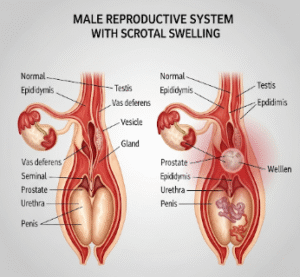Overview
Myeloma, also known as Multiple Myeloma (MM), is a type of blood cancer that affects plasma cells in the bone marrow. It leads to abnormal antibody production, weakened immunity, bone damage, anemia, and kidney problems. In Korea, the availability of advanced diagnostic tools, targeted therapies, and stem cell transplantation has improved survival and quality of life for patients. Leading hospitals like Seoul National University Hospital, Samsung Medical Center, and Asan Medical Center provide comprehensive care for individuals with myeloma.
What is Myeloma?
Myeloma is a malignant disorder of plasma cells, a type of white blood cell that produces antibodies. In MM, abnormal plasma cells multiply uncontrollably, producing a protein called M-protein, which can damage organs and suppress normal blood cell production. It primarily affects adults over 50, though it can occur at younger ages in rare cases.
Symptoms
- Bone pain, especially in the spine, ribs, or pelvis
- Fatigue and weakness due to anemia
- Frequent infections from impaired immunity
- High calcium levels causing nausea, constipation, or confusion
- Kidney dysfunction
- Unexplained weight loss
- Easy bruising or bleeding
Causes
- Genetic mutations in plasma cells
- Age-related changes in bone marrow
- Environmental exposures such as radiation or certain chemicals
- Family history of hematologic cancers (rare)
Risk Factors
- Age over 50 years
- Male gender
- Family history of blood cancers
- Exposure to radiation or toxic chemicals
- Chronic immune system disorders or obesity
Complications
- Bone fractures and skeletal damage
- Kidney failure due to M-protein accumulation
- Infections from weakened immunity
- Hypercalcemia-related complications
- Anemia and bleeding disorders
- Reduced quality of life and shortened life expectancy if untreated
Prevention
- No guaranteed prevention exists
- Maintain a healthy lifestyle and diet
- Avoid exposure to harmful chemicals and radiation
- Early medical evaluation if symptoms like fatigue, bone pain, or infections appear
- Routine check-ups for individuals with risk factors or family history
Treatment Options in Korea
Korea offers a range of treatment strategies for myeloma, focusing on controlling disease progression, relieving symptoms, and improving survival.
- Diagnosis
- Blood tests to detect M-protein and anemia
- Urine tests for Bence Jones proteins
- Bone marrow biopsy to confirm plasma cell proliferation
- Imaging (X-ray, MRI, PET/CT) to assess bone damage
- Medical Treatments
- Chemotherapy to reduce abnormal plasma cells
- Targeted therapies (proteasome inhibitors, immunomodulatory drugs)
- Monoclonal antibody therapy to attack cancer cells
- Corticosteroids to control inflammation and tumor activity
- Advanced Treatments
- Autologous stem cell transplantation for eligible patients
- Radiation therapy for localized bone lesions
- Clinical trials for newer therapies at leading centers
- Supportive Care
- Pain management and bone-strengthening medications (bisphosphonates)
- Infection prevention via vaccines and antibiotics
- Nutritional support and rehabilitation
- Specialized Hospitals in Korea
- Seoul National University Hospital – Hematology and stem cell transplantation programs
- Asan Medical Center – Advanced chemotherapy and targeted therapy
- Samsung Medical Center – Comprehensive myeloma care and clinical trials
- Yonsei Severance Hospital – Multidisciplinary supportive and palliative care
- Long-Term Follow-Up
- Regular blood and imaging tests to monitor remission and relapse
- Ongoing management of complications such as bone and kidney damage
- Psychological support and counseling for patients and families













